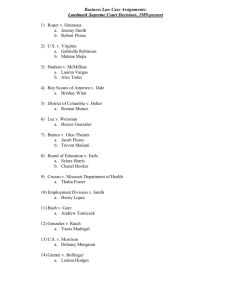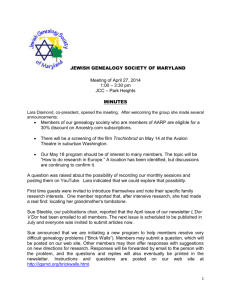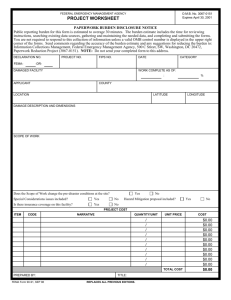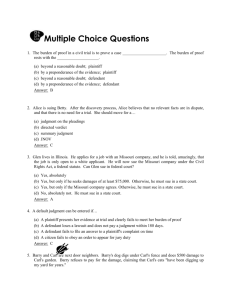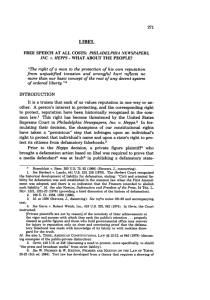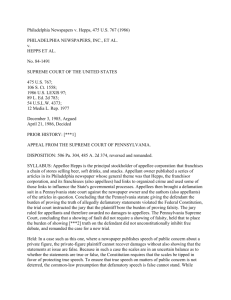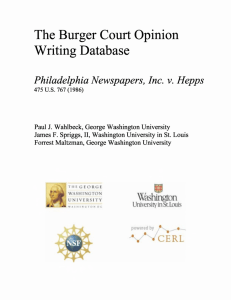Philadelphia Newspapers, Inc v. Hepps Case Brief
advertisement
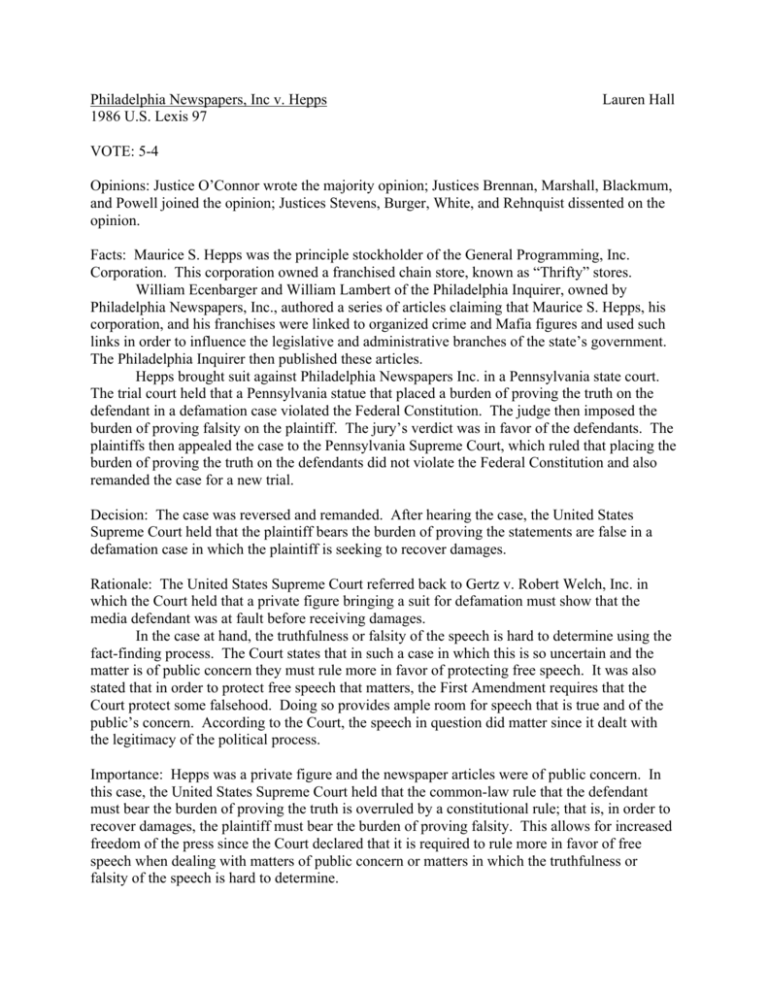
Philadelphia Newspapers, Inc v. Hepps 1986 U.S. Lexis 97 Lauren Hall VOTE: 5-4 Opinions: Justice O’Connor wrote the majority opinion; Justices Brennan, Marshall, Blackmum, and Powell joined the opinion; Justices Stevens, Burger, White, and Rehnquist dissented on the opinion. Facts: Maurice S. Hepps was the principle stockholder of the General Programming, Inc. Corporation. This corporation owned a franchised chain store, known as “Thrifty” stores. William Ecenbarger and William Lambert of the Philadelphia Inquirer, owned by Philadelphia Newspapers, Inc., authored a series of articles claiming that Maurice S. Hepps, his corporation, and his franchises were linked to organized crime and Mafia figures and used such links in order to influence the legislative and administrative branches of the state’s government. The Philadelphia Inquirer then published these articles. Hepps brought suit against Philadelphia Newspapers Inc. in a Pennsylvania state court. The trial court held that a Pennsylvania statue that placed a burden of proving the truth on the defendant in a defamation case violated the Federal Constitution. The judge then imposed the burden of proving falsity on the plaintiff. The jury’s verdict was in favor of the defendants. The plaintiffs then appealed the case to the Pennsylvania Supreme Court, which ruled that placing the burden of proving the truth on the defendants did not violate the Federal Constitution and also remanded the case for a new trial. Decision: The case was reversed and remanded. After hearing the case, the United States Supreme Court held that the plaintiff bears the burden of proving the statements are false in a defamation case in which the plaintiff is seeking to recover damages. Rationale: The United States Supreme Court referred back to Gertz v. Robert Welch, Inc. in which the Court held that a private figure bringing a suit for defamation must show that the media defendant was at fault before receiving damages. In the case at hand, the truthfulness or falsity of the speech is hard to determine using the fact-finding process. The Court states that in such a case in which this is so uncertain and the matter is of public concern they must rule more in favor of protecting free speech. It was also stated that in order to protect free speech that matters, the First Amendment requires that the Court protect some falsehood. Doing so provides ample room for speech that is true and of the public’s concern. According to the Court, the speech in question did matter since it dealt with the legitimacy of the political process. Importance: Hepps was a private figure and the newspaper articles were of public concern. In this case, the United States Supreme Court held that the common-law rule that the defendant must bear the burden of proving the truth is overruled by a constitutional rule; that is, in order to recover damages, the plaintiff must bear the burden of proving falsity. This allows for increased freedom of the press since the Court declared that it is required to rule more in favor of free speech when dealing with matters of public concern or matters in which the truthfulness or falsity of the speech is hard to determine.

